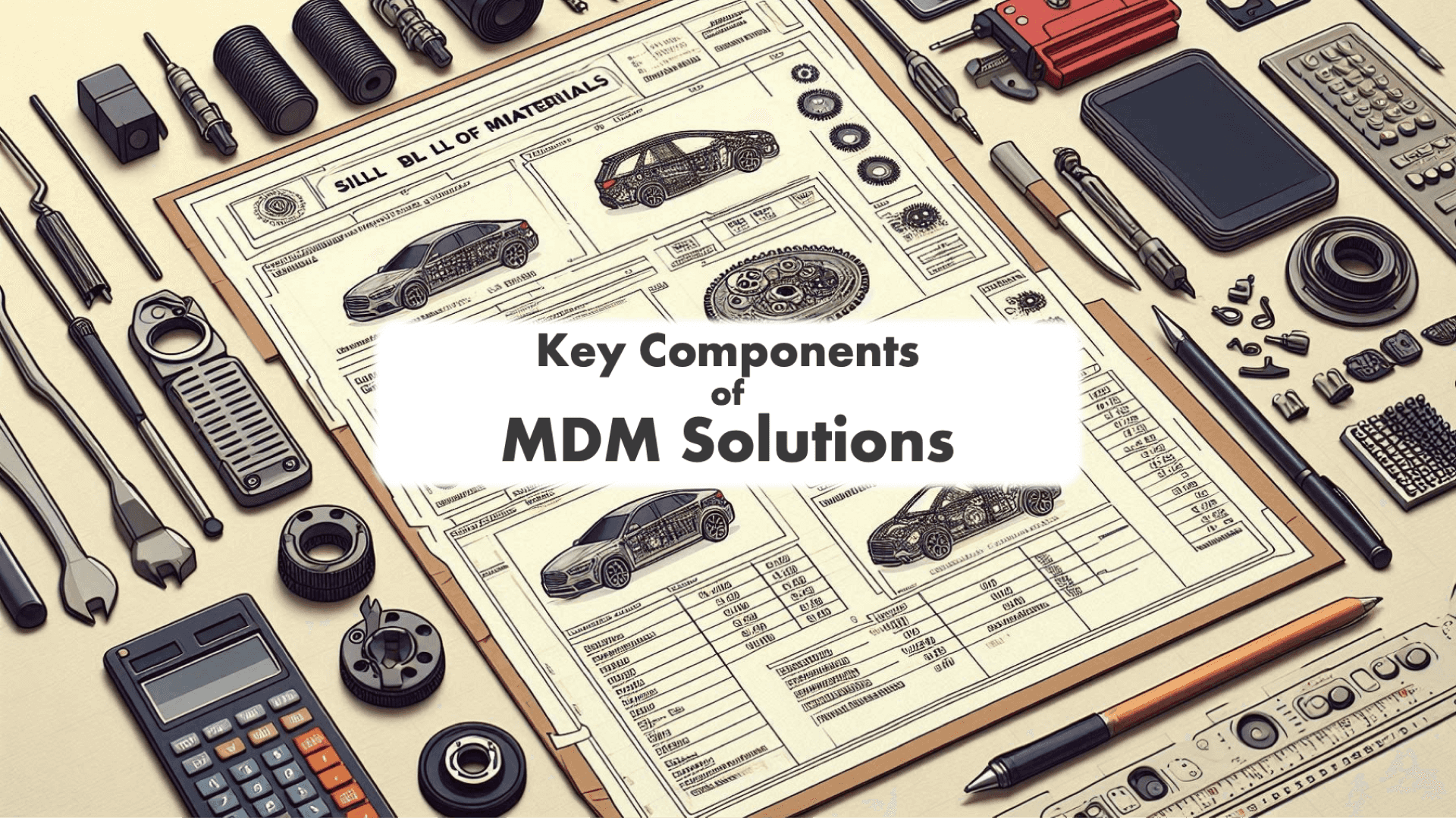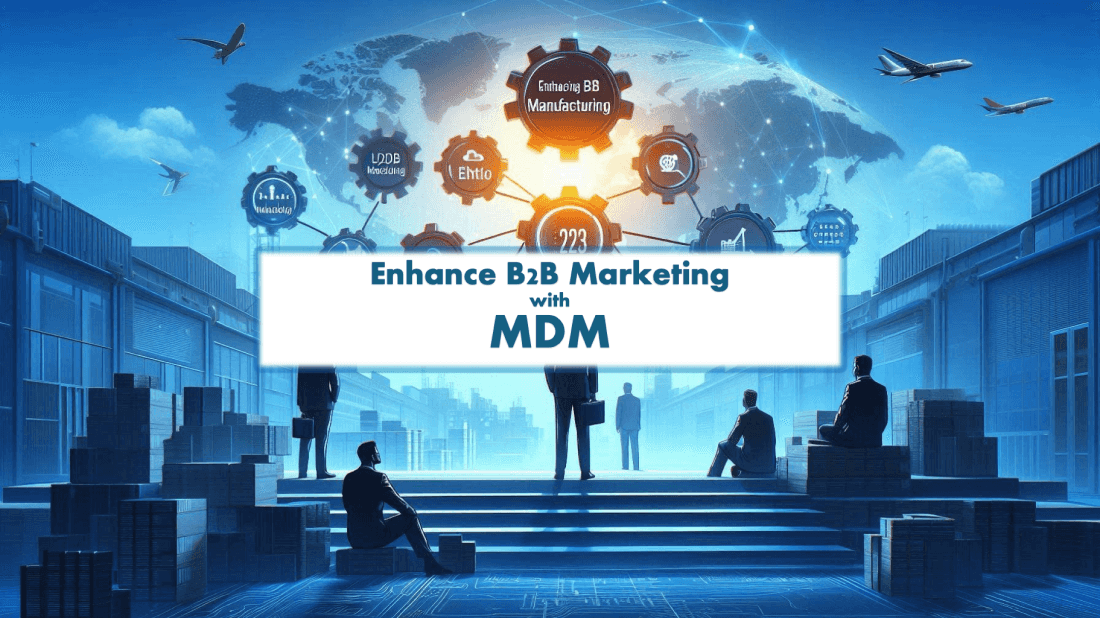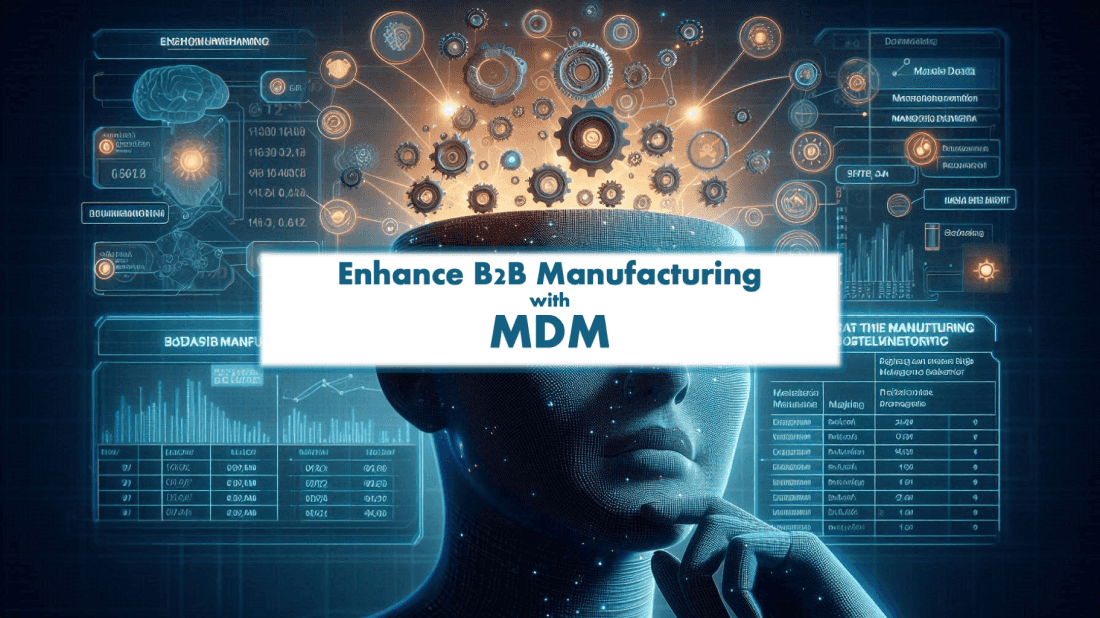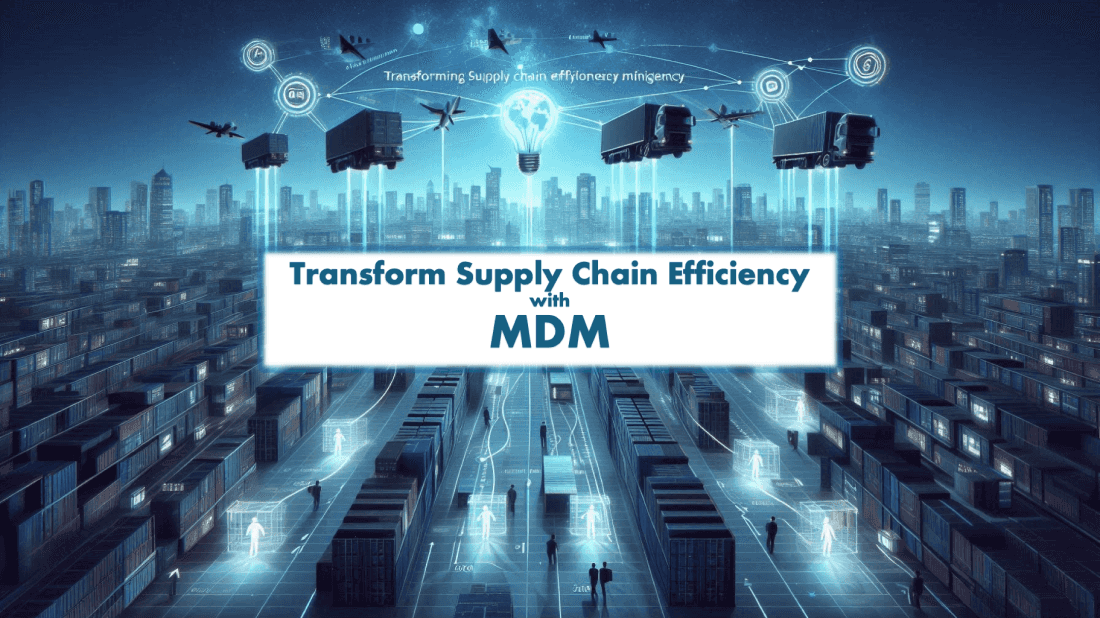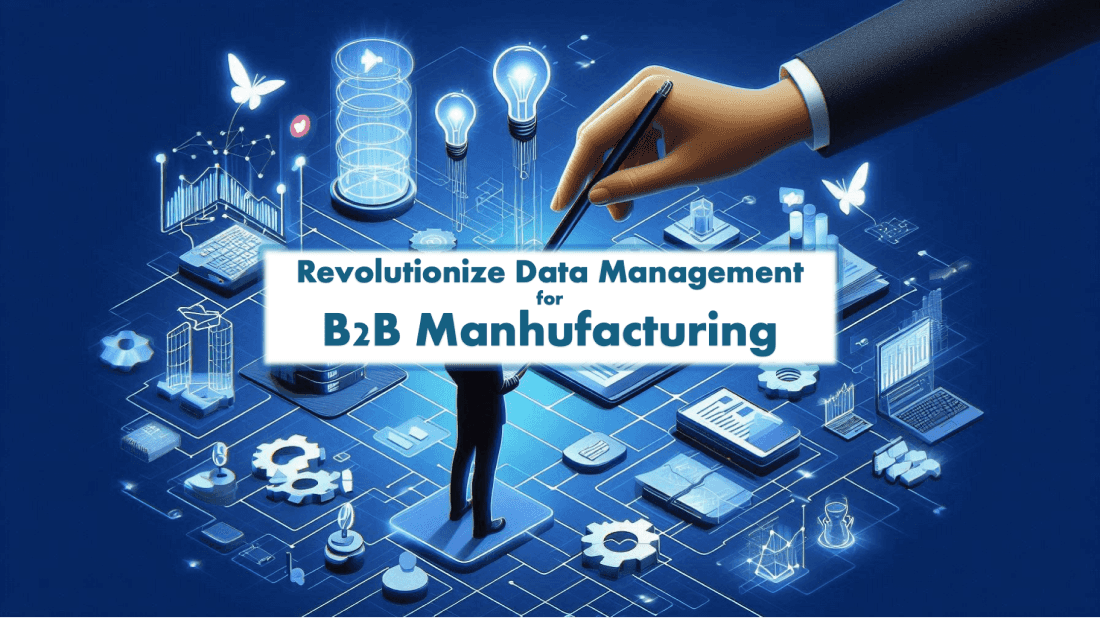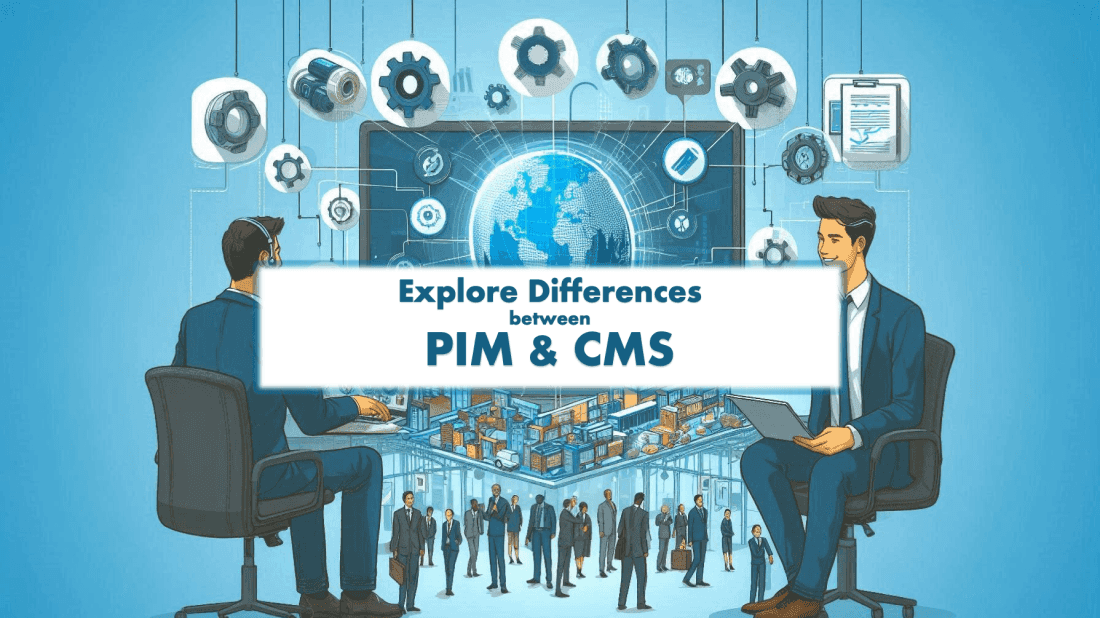Jun 9th, 2024
Revolutionizing Product Data Management with SaaS PIM Solutions
Categories:Product Information Management SystemProduct Data Management SystemIn today’s competitive manufacturing landscape, managing extensive product data effectively is crucial.
Product Information Management (PIM) systems, particularly those offered as Software-as-a-Service (SaaS), provide a strategic advantage by centralizing, standardizing, and enhancing product information. This transformation in data management streamlines business processes and boosts competitiveness, making PIM SaaS an essential tool for manufacturing companies.
Understanding PIM Systems: The Basics
What is PIM?
Product Information Management (PIM) systems are essential tools that consolidate, organize, and enrich product data. A PIM system creates a centralized hub for all product information, ensuring that stakeholders have access to the best quality and most up-to-date data. By integrating data from various sources such as ERP systems and PLM platforms, a PIM system provides a single source of truth for product information, facilitating seamless distribution across multiple channels.
How Does PIM SaaS Work?
PIM as a SaaS follows the core principles of the SaaS model. Instead of purchasing a software license and managing it in-house, businesses opt for a PIM platform hosted on the vendor's servers. This cloud-based approach allows manufacturers to access the PIM system via the internet, benefiting from regular updates, enhanced security, and reduced IT overhead.
Key Benefits of PIM SaaS Solutions
Enhanced Scalability and Flexibility
Cloud-based PIM solutions offer unparalleled scalability. Manufacturers can easily add users, increase storage, and expand features as needed without significant upfront investments. This flexibility allows businesses to adapt quickly to changing market demands and scale their operations seamlessly.
Cost-Effectiveness
Implementing a PIM SaaS solution significantly reduces initial costs. The subscription-based pricing model eliminates the need for substantial upfront investments in hardware and software. Additionally, predictable monthly or annual fees make budgeting easier and more manageable.
Streamlined Maintenance and Upgrades
One of the most significant advantages of PIM SaaS is that the vendor handles all maintenance and upgrades. Automatic updates ensure that businesses always use the latest version of the software without downtime or disruptions. This reduces the burden on in-house IT teams and ensures that the system remains secure and up-to-date.
Improved Security
SaaS PIM providers invest heavily in security measures, including advanced encryption, secure data centers, and stringent access controls. This robust security infrastructure protects valuable product data and reduces the risk of data breaches. With dedicated security teams monitoring potential threats, manufacturers can focus on their core business activities.
Ease of Implementation and Integration
SaaS PIM solutions offer faster and more streamlined implementation compared to on-premises systems. Many vendors provide pre-built templates and workflows tailored to specific industries, reducing complexity and allowing businesses to start using the system quickly. Additionally, cloud-based PIM tools integrate effortlessly with existing ERP, CRM, and eCommerce platforms, ensuring consistent and accurate product information across all systems.
Critical Features of PIM SaaS Solutions
Data Consolidation and Standardization
PIM SaaS systems excel at consolidating product data from multiple sources into a single, centralized repository. This feature ensures that all departments have access to consistent and accurate data, enhancing decision-making and operational efficiency. By standardizing product information through templates and rules, PIM systems maintain data consistency across different channels and stakeholders.
Data Enrichment and Governance
Enhancing data quality is a key function of PIM systems. They fill in missing information, correct errors, and provide tools for data enrichment, leading to more accurate and comprehensive product information. Robust governance and workflow capabilities allow manufacturers to define user roles, set approval processes, and maintain data integrity, ensuring that only accurate information is disseminated across the organization.
Multi-Channel Distribution
A significant advantage of PIM SaaS is its ability to tailor product data for different channels, such as distributor portals, eCommerce platforms, and print catalogs. This multi-channel distribution capability ensures that each platform receives optimized product information, improving the customer experience and sales performance. The seamless integration with various channels supports manufacturers in maintaining consistent and up-to-date information across all platforms.
Comparing PIM SaaS to On-Premises Solutions
Deployment and Setup
PIM SaaS solutions are cloud-based and managed by the vendor, allowing for faster implementation and less complex setup. In contrast, on-premises PIM systems require local installation, significant IT resources, and longer deployment times.
Cost Considerations
SaaS PIM solutions operate on a subscription-based pricing model, resulting in lower upfront investment and predictable operational expenses. On-premises systems, however, involve substantial initial costs for software licenses, hardware, and ongoing maintenance.
Maintenance and Upgrades
The vendor handles all maintenance, upgrades, and security for SaaS PIM systems, ensuring automatic updates and reducing the burden on internal IT teams. On-premises systems require in-house IT teams to manage updates, patches, and infrastructure maintenance, which can be time-consuming and costly.
Scalability and Accessibility
PIM SaaS solutions offer flexible scaling options to accommodate changing business needs and provide easy access from anywhere with an internet connection. On-premises systems, however, require additional hardware and IT resources to scale and may offer limited remote access.
Security and Control
While SaaS PIM providers manage security with advanced measures and dedicated teams, on-premises systems place the responsibility on the company’s IT team, potentially requiring additional security investments.
PIM vs ERP: Complementary Tools for Comprehensive Management
While both PIM and ERP systems manage product data, they serve different purposes. ERPs handle transactional data and business processes, whereas PIM systems focus on the detailed product information required for marketing and sales. Together, they provide a comprehensive solution for manufacturers, with ERPs managing the supply chain and production details, and PIMs enhancing the marketing and sales data.
Open-Source PIM Software: A Flexible Alternative
Open-source PIM software offers manufacturers a customizable and cost-effective option for managing product information. These solutions can be tailored to specific needs, providing flexibility and scalability. Manufacturers can leverage open-source PIM software to adapt quickly to changing market demands and integrate with other enterprise systems without significant investment.
PIM for Marketing: Enhancing Campaigns with Quality Data
PIM systems play a crucial role in marketing by providing accurate and enriched product data. This information supports targeted marketing campaigns, improves customer engagement, and drives sales. By integrating with marketing tools, PIM systems ensure that all product information used in campaigns is up-to-date and consistent, enhancing the effectiveness of marketing efforts.
PIM Use Cases in Manufacturing: Real-World Applications
PIM systems offer a wide range of use cases in manufacturing, from improving product launch processes to enhancing customer experiences. For instance, a manufacturer of industrial machinery can use a PIM system to organize detailed specifications, images, videos, and digital assets for each product. This organization allows sales teams to quickly access accurate information and present it to potential customers, streamlining the sales process and improving conversion rates.
Another important use case is regulatory compliance. Manufacturers must often comply with various industry regulations and standards. A PIM system can help manage and update compliance-related data, ensuring that all product information meets the required standards. This capability reduces the risk of non-compliance and helps maintain the company’s reputation.
Enterprise PIM Solutions for Large-Scale Operations
For large-scale manufacturing operations, enterprise PIM solutions offer advanced features tailored to meet the needs of complex organizations. These solutions provide robust data governance, scalability, and integration capabilities, making them ideal for managing extensive product lines and multiple business units. Enterprise PIM systems support large teams with advanced user management features, allowing for efficient collaboration across departments.
B2B PIM: Enhancing Business-to-Business Interactions
B2B manufacturers benefit significantly from PIM systems as they enhance interactions with business partners. A B2B PIM system ensures that all partners have access to consistent and up-to-date product information, improving communication and collaboration. This consistency helps build stronger relationships with distributors and retailers, leading to increased sales and market reach.
Implementing PIM Best Practices for Maximum Impact
To maximize the benefits of PIM systems, manufacturers should follow best practices during implementation. This includes defining clear objectives, involving key stakeholders, focusing on data quality, and leveraging integration capabilities. Regularly reviewing and updating PIM processes ensure continuous improvement and adaptation to changing business needs.
Conclusion: Maximizing Business Potential with SaaS PIM
A robust PIM SaaS system is essential for B2B manufacturers looking to streamline data management, improve product information quality, and enhance overall operational efficiency. By leveraging the features and benefits of PIM SaaS, manufacturers can achieve a competitive edge and drive success in a dynamic market. The best product information management system integrates seamlessly with existing processes, supports marketing and sales efforts, and ensures consistent product information across all channels. Implementing a PIM SaaS solution enables manufacturers to manage their product data efficiently, reducing time-to-market, improving customer satisfaction, and driving sales growth.
About Neurologik.io
Do you feel like your product team at your company spends way too much time on tedious data administration instead of actual product work?
Neurologik.io streamlines all your product data into one intuitive platform, putting an end to hunting through scattered systems and manually updating information. Our customers cut their data management workload by 80% on average. Imagine what your team could accomplish with all that time saved.
If you’d like to explore how Neurologik.io can massively boost your company’s product team productivity, Contact us for a ProductHub demo today.
